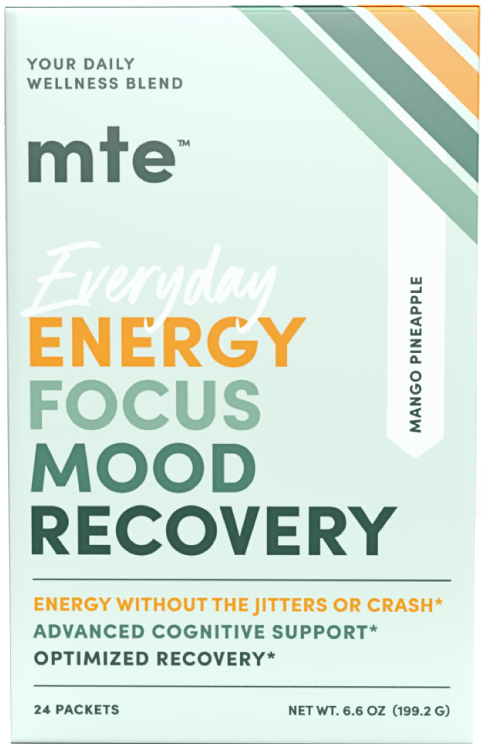
Stress, Dopamine, & Dysfunction: Mood & Memory in the Digital Age
Do you go anywhere without your phone, a tablet, or a laptop? What about a fitness ring or smartwatch? We are attached to our devices. And even when we’re not, there’s a device nearby. You can’t even pump gas now without being bombarded with advertisements on a screen. We’re in an age of 24/7 everything — staying up until 330 AM scrolling TikTok, opening your micro-learning app every time you get bored for a second, answering work email at 9 PM because you got a notification on your phone and the preview looks urgent. We’re always being bombarded with lights, sound, information, and novelty. But evolution didn’t prepare us for it.
At the heart of that compulsion to open your phone or watch that 7th episode in a row of The Bear is the dopaminergic system. Dopamine is the main neurochemical involved in reward signaling. But it doesn't work in isolation. Serotonin, the main feel-good signaler, and norepinephrine, an energy booster, are heavily interlinked with dopamine. So, what is all this digital overstimulation doing to the natural function of these systems?
Hint: It’s not great.
Understanding Digital Overstimulation & Dopamine Dysregulation
Dopamine is heavily involved in reward-seeking, attention, and motivation. It’s why Pavlov’s Dog is a thing, and it’s how you teach crows to steal money from people and bring it back to you. Every time you get a like on Instagram, watch a funny TikTok video, or finish a perfect Norwegian lesson on Duolingo, you get a little hit of dopamine. All fine and good. Except when you get that type of stimulation constantly, you develop a dopamine tolerance, which means it takes more dopamine to just feel okay. So you kind of just stop feeling okay, which leads you to seek out more little dopamine hits.
It’s basically a drug addiction when you think about it.
The constant dopamine stimulation causes your brain to reduce receptor sensitivity as well as natural dopamine production, which makes it even more attractive to seek out stimulation. We refer to this messed-up version of dopaminergic activity as dopamine dysregulation. Signs of dysregulated dopamine include:
- Brain fog: inability to focus or keep attention during tasks
- Anxiety: restlessness, reactivity, and impulsivity
- Low motivation for low-stakes activities: why that pile of laundry never gets folded
- Low mood: why nothing seems fun or rewarding anymore
A Cascade of Chemical Problems: Effects on Serotonin & Norepinephrine
Excessive screen time has been causally linked to increased anxiety, low mood, and poor sleep. We mentioned how dopamine doesn’t act on its own. It takes thousands of cellular and chemical processes to simply exist as a person — none of them act in isolation. So if your dopaminergic system is on the fritz, best believe its friends are feeling the ripple effects, too. Specifically, serotonin and norepinephrine are heavily affected by digital overstimulation.
Serotonin & Mood Instability
Serotonin plays a major role in our daily experience. It helps us regulate emotions and stabilizes mood through its control of appetite, sleep, and feelings of pleasure. When dopamine is dysregulated, the symptoms also stop serotonin from acting right:
- Reduced deep sleep and other sleep disturbances prevent serotonin from replenishing nightly.
- Increased anxiety and rumination prevents serotonin uptake.
- A messed up digestive system prevents the production of serotonin — most serotonin is produced in the gut.
Norepinephrine & Reactivity
Part of why people recommend shutting screens off an hour before bed is because the other thing screens activate is a little piece of the brain stem that releases norepinephrine, a major chemical involved in alertness. It’s meant to be balanced out by dopaminergic and serotonergic activity, when everyone is on the same page. However, chronic activation of this part of the brain, causing chronic production of norepinephrine, leads to:
- Mental fatigue and brain fog
- Irritability and reactivity
- Hypervigilance and sleeplessness
All of these effects combine so that — just like your screens — you can never turn off. Eventually, this wears away at your HPA axis, hampering your ability to deal with, respond to, and fight stress. Less stress resilience circles back, and you get a nasty feedback loop of an increasing inability to regulate emotions, find pleasure in life, sleep well, and even just feel okay.
Seems like nothing to worry about.
Effects of Dopamine Dysregulation & How to Get Your Groove Back
Okay, so let’s just laundry list the negative effects of digital overstimulation and all the dysregulation it causes:
- Decreased attention span → brain fog
- Poor working memory → reduced ability to learn and retain info
- Increased emotional reactivity → unstable and low mood
- Poor quality sleep → insomnia
- Digestive problems → reduced immunity
- Adrenal over-activation → that weird combo feeling of tired and dissociated
All of this leads us to seek out something quick and dirty to take the edge off — boost energy, enhance mood, and improve productivity. Caffeine has traditionally been the answer, but it actually further contributed to dopamine dysfunction because it also throws you in a drugged-out dependence cycle. It increases cortisol (and stresses adrenals), uses up dopamine (and depletes reserves), and disrupts sleep (bye bye, serotonin).
Certainly not helping quell the urge to smack Carl in the mouth the next time he calls you sweetheart on a conference call.
However, there’s a better way to naturally boost mood, energy, and stress resilience by supporting dopaminergic activity: adaptogens and nootropics. A caffeine-free alternative to energy drinks and coffee, a daily wellness drink stacked with adaptogenic herbs, nootropic compounds, and superfoods can help you avoid an assault charge, sleep and feel better, have more energy, and slough off daily stresses with ease.
How Adaptogens & Nootropics Help Dopamine Deficiencies
Adaptogens and nootropics are bioactive compounds that act directly on native systems in the body. Adaptogens promote increased stress resilience, balanced mood, sleep, and immunity. Nootropics boost cognition, focus, performance, and recovery. Together, a combination of adaptogenic herbs and natural nootropics can offer extra support against digital overstimulation and the problems it’s clearly causing.
A few adaptogens and nootropics that target dopamine and its two BFFs are:
- Ashwagandha: The most famous adaptogen ever, ashwagandha offers many benefits by acting directly on the HPA axis to upregulate dopamine and serotonin while downregulating norepinephrine during stress responses. Ashwagandha has been observed as an effective tool in managing stress and anxiety, as well as improving sleep health.
- Paraxanthine: A nootropic compound and main metabolite of caffeine, paraxanthine increases free dopamine, which supports mood, energy, and stress response. Studies have shown paraxanthine increase energy, mood, cognition, and thermogenesis/metabolic function.
- Saffron: A superfood and powerful nootropic, studies have shown saffron performs as effectively at preventing serotonin reuptake as a common medication. It also supports immunity, low mood, cognition, and inflammation.
- Theanine: A nootropic and amino acid found in tea leaves, theanine upregulates dopamine, serotonin, and norepinephrine. Studies have shown l-theanine improves mood, alertness, and working memory, supports hippocampal health and development, and reduces the severity of the effects of acute stress.
Healthy Habits to Fight Dopamine Dysfunction
There are also things you can do to help regulate your nervous system, bringing your mood, memory, and motivation back into balance. Ways to hit the reset button, sort of:
- Occasionally stay off screens for 24-48 hours; it allows time for dopamine sensitivity to bounce back.
- Eat lots of protein. Meats and certain grains contain tyrosine, a dopamine precursor, and tryptophan, which supports serotonin production.
- Getting outside directly stimulates activity of all three neurotransmitters — even just a half hour has a real effect. Along those lines, exercise unquestionably supports these systems, too.
- Prioritize sleep. Keep a consistent routine and ensure you’re getting the recommended amount; it supports your body’s natural mechanisms that replenish serotonin and dopamine.
- Consider mono-tasking. Maintaining concentration on one task, as opposed to dabbling at several at once, reduces dopamine fragmentation.
While daily stress is a reality and the background noise of digital media is ever-present, we can still manage it all if we take the right strategy. The energy supplement market just hasn’t caught up yet, and that’s what MTE was formulated to solve. A daily productivity supplement meant to increase resilience to the bombardment of everything everywhere all the time, MTE’s adaptogenic herb blend and nootropics for mood can boost your best efforts. Go ahead. Get that dopamine back on track and start feeling great again. It’s within reach.



